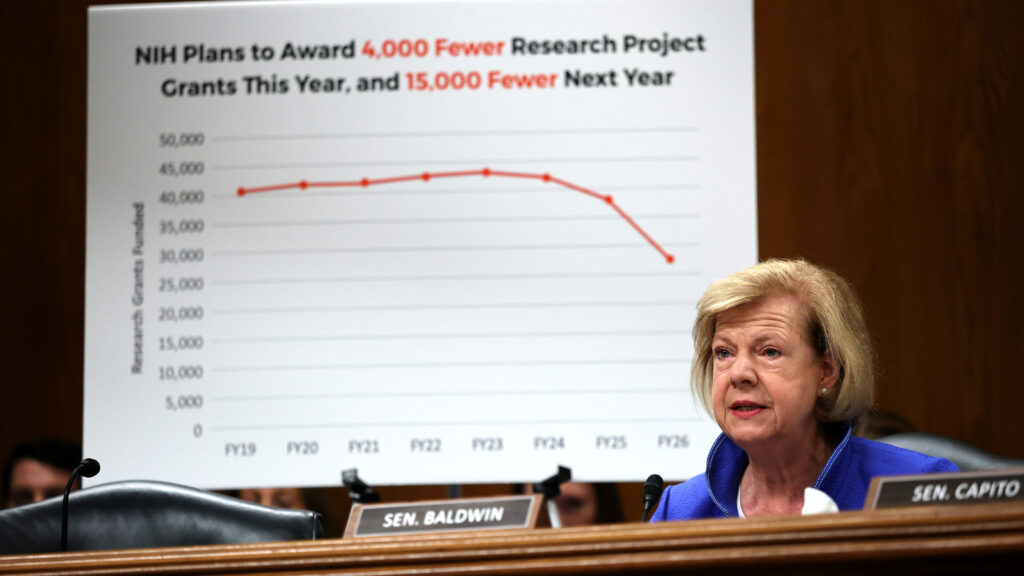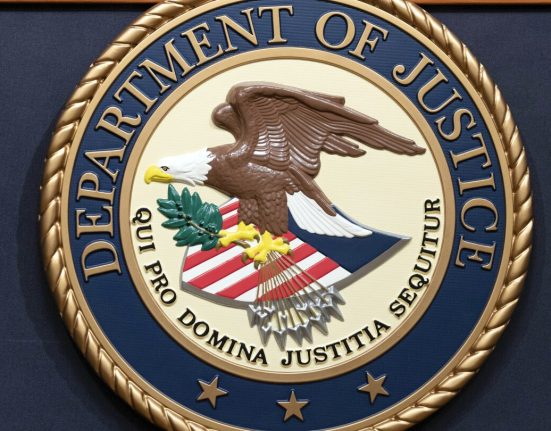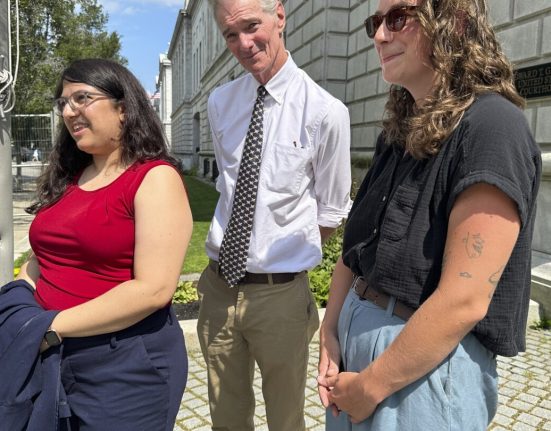The National Institutes of Health plans to shrink the share of grant applications it will award for the remaining two months of the fiscal year due to a new Trump administration policy — in some cases, by more than half compared to the previous year.
The National Cancer Institute, for example, informed scientists last week that it expected to be able to fund just 4% of grant applications, down from 9%. The policy change, affecting multiple branches of NIH, will ratchet up competition for grants to an unprecedented level. And unless Congress steps in, the more restrictive policy will continue in the budget year starting Oct. 1.
The policy will affect R01 grants, which represent the bulk of federal funding for universities and medical centers, and are often described as the “basic building blocks” of scientific research. These grants are awarded to scientists who run labs and are the basis for funding their graduate students, post-docs, equipment, and materials, and sometimes their own salaries. Not included are certain early-career grants and training grants.


This article is exclusive to STAT+ subscribers
Unlock this article — plus daily intelligence on Capitol Hill and the life sciences industry — by subscribing to STAT+.
Already have an account? Log in







